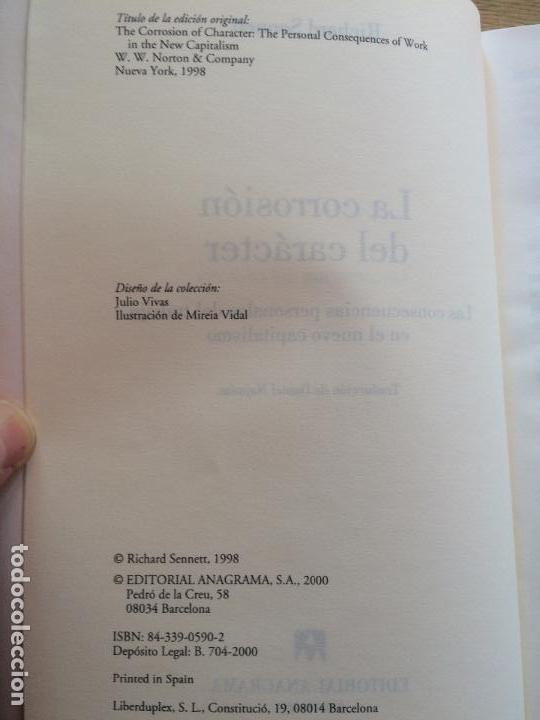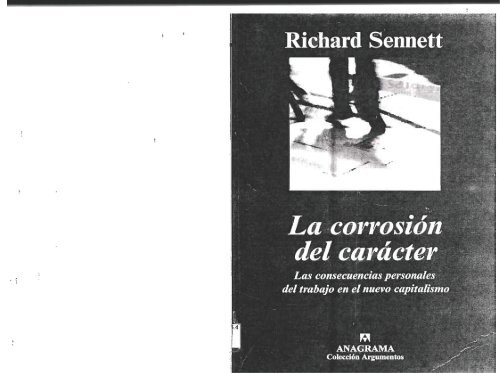

The Personal Consequences of Work in the New. Today the rapidity of change impedes attempts to even describe the contemporary norm, and when dynamism becomes normal, Sennett (Flesh and Stone, 1994, etc. Gone are the days of corporate loyalty and rewarding seniority found in the immediate post-WWII work environment. Today’s workplace is not what it once was. The Corrosion of Character is a short, anecdotal book, and while one might wish that it included a discussion of the social and psychological costs of the sheer increase of work time in the average worker's week, Sennett has created a pithy, disturbing picture of the cost of the corporate world's much-vaunted new efficiencies. Reúno aquí cuatro notas, de distinta extensión, en la que escribo sobre cosas que Richard Sennett trató en su libro The Corrosion of Character. The roots of a modern tragedy are exposed.

The Personal Consequences of Work in the New Capitalism Find, read and cite all the research. Innovations like "flextime" and bureaucratic "de-layering" seem to promise more freedom to define one's career, but in fact they create jobs in which there's less freedom than ever to be had. Request PDF On May 1, 2000, Lenka Banovcova published Richard Sennett: The Corrosion of Character. Sennett’s book examines the impact of these new forms of work on people and society. Even in menial jobs, we extract much of our self-image from the idea of a "career"-a life narrative rendered intelligible by specific loyalties, which is to some degree self-invented but also in some respects predictable. This, he argues, has tremendous negative consequences for workers' emotional and psychological well-being.

In the brave new world of the "flexible" corporation, Richard Sennett observes, workers at all levels are regarded as wholly disposable, and they have responded in kind, ceasing to think in terms of any long-term relationship with the organizations they work for.


 0 kommentar(er)
0 kommentar(er)
